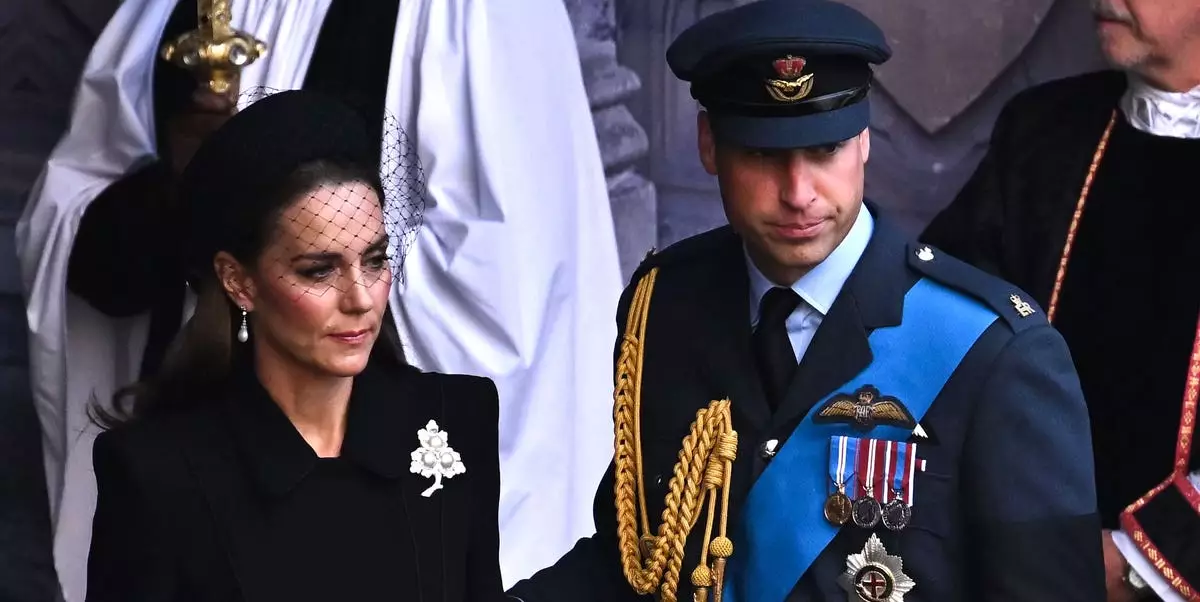In a significant moment that reverberated through both religious and royal circles, Prince William took center stage as he attended the funeral of Pope Francis, representing the British monarchy. This solemn occasion, held on April 26, 2025, at the historic St. Peter’s Basilica in Vatican City, saw members of numerous faiths come together to honor a leader whose impact transcended borders and cultures. The absence of King Charles III, replaced by his son, raised questions about royal protocol, tradition, and personal loss.
William’s presence at this momentous event is emblematic of the evolving role of the British monarchy, steering it from tradition toward a more connected, compassionate institution. The decision for him to attend alone reflects a well-thought-out alignment with royal customs—King Charles’s avoidance of funerals as sovereign has historical precedent. This choice underscores the delicate nature of public duty and the expectations placed upon members of the royal family, which further complicates their personal lives and grief.
Echoes of Her Majesty’s Legacy
Kate Middleton’s absence at the funeral is hardly surprising, especially when looking into the past. The royal family has long upheld a tradition of designated representatives at significant state events. An example of this can be traced back to 2005 when then-Prince Charles represented Queen Elizabeth II at Pope John Paul II’s funeral. His wife, Camilla, did not accompany him on that occasion either, forming a poignant historical parallel as William navigated the complexities of modern royal duties without his partner.
While it might seem that the royal couple’s absence at such vital events indicates distance, it could be interpreted as a refined approach to their responsibilities—one shaped by personal roles and the institution’s evolving nature. In this light, Princess Kate’s absence should be viewed as an understanding of context, rather than negligence of respect.
The Weight of Papal Legacy
Pope Francis’s passing at the age of 88 left a profound impact, creating ripples of mourning across the globe. His commitment to dialogue and unity among faiths deeply resonated with people from all walks of life, encapsulating a message of love, tolerance, and concern for the environment—a legacy that transcends his Papacy. King Charles’s heartfelt tribute highlighted these qualities, capturing the essence of a man who devoted his life to the welfare of humanity.
In a poignant statement following the Pope’s death, the King spoke eloquently about Pope Francis’s ability to inspire and touch lives, reinforcing the shared values that bridge the gap between religion and humanity. Such words illustrate not only respect for an individual but also a recognition of the collaborative possibilities between institutions of faith and the monarchy, beckoning a cross-generational dialogue that the young royals seem eager to nurture.
Protocol vs. Personal Grief
The decision for King Charles to forgo attendance stems from his commitment to adherence to royal protocol—an aspect often criticized for being outdated in a rapidly changing world. Yet, it’s crucial to consider the deeper implications of such traditions. By delegating the responsibility, Charles implicitly emphasizes that while royals are bound by duty, they are also individuals grappling with personal and profound grief.
As the public looks on, Prince William’s role becomes more than just ceremonial; it embodies a bridging of past and future, a transition of legacy and responsibility. His attendance not only signifies respect for the deceased but serves as a subtle acknowledgment of the changing landscape of the monarchy, where individual choices can harmoniously exist alongside tradition.
Future Directions for the Monarchy
In navigating this delicate balance between personal sentiment and royal duty, the monarchy finds itself at a crossroads. The young generation, exemplified by William and Kate, appears poised to inject modern sensibilities into an institution long mired in time-honored customs. The question remains: how can the royal family continue to honor tradition while forging ahead into a more relatable and empathetic future?
Pope Francis’s legacy serves as a guiding light not just for the Catholic Church, but for all world leaders grappling with societal change. The royal family’s recognition of this impact signals their commitment to not just represent tradition but also to participate in ongoing dialogues about duty, faith, and the interconnectedness of humanity. As they navigate this evolving landscape, one wonders what new traditions might emerge from the interplay of personal loss, significant public moments, and unwavering legacy.

